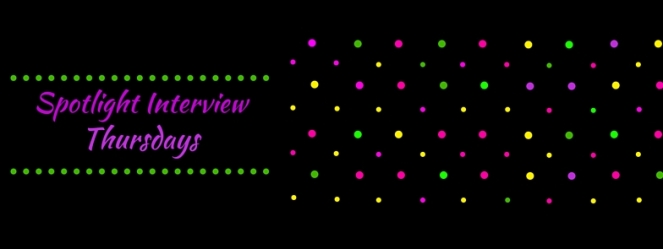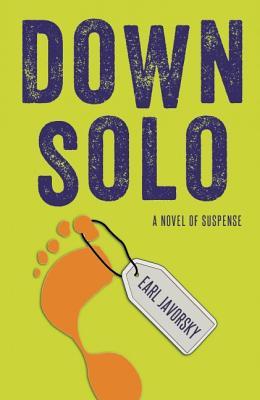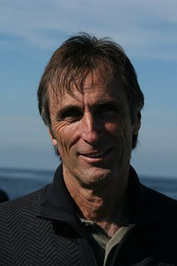
Genre: Epic Fantasy, Sword & Sorcery
Publisher: The National Library of New Zealand
Date of Release: November 28, 2016
Pages: 300 pages
Links: Amazon, Good Reads
About the Book:
The Three Nations are crumbling.
Darkness is gathering.
And only Eric remains to stand against it.
Eric stumbles through the wilderness, searching, hunting – desperate for sign of his sister. But the girl is gone, stolen away by the power of the Soul Blade. With each passing hour its hold on her tightens, her spirit fading before the onslaught of its magic. If he cannot save her soon, it will claim her soul. And he will have to kill her.
Meanwhile, Gabriel is locked in the cells beneath Ardath. The darkness presses in around him, absolute, suffocating. Time, hope, sanity, all have long since slipped beneath the waves of his despair. Only it remains – the unrelenting voice of the demon. It haunts the darkness, tempting him with promises of freedom.
How long can he resist its call?
Giveaway:
http://blog.ravenpublicity.com/giveaways/sciencefiction-fantasy-win-3-paperbacks-giveaway-kindle-amreading/
About the Author:

Aaron Hodges was born in 1989 in the small town of Whakatane, New Zealand. He studied for five years at the University of Auckland, completing a Bachelor’s of Science in Biology and Geography, and a Masters of Environmental Engineering. After working as an environmental consultant for two years, he grew tired of office work and decided to quit his job and see the world. During his travels he picked up an old draft of a novel he once wrote in High School – titled The Sword of Light – and began to rewrite the story. This book, Soul Blade, marks the final conclusion of that epic tale.
Fans of Aaron can signup for updates and special offers at:
aaronhodges.co.nz/newsletter-signup/
Links:
Website | Amazon Author Page | Good Reads
Spotlight Interview
Thank you to Aaron for allowing me to host part of his Blog Tour and to interview him. Enjoy my fellow readers!
Can you tell us a little about yourself and your background?
Sure thing! Well, the first thing you should know about me is that I’m from New Zealand. And yes, I like The Lord of the Rings ;-). I am an Environmental Scientist by profession, but gave that up a few years back to see the world – an Overseas Experience (OE) as we call it in New Zealand. And, well, since then I haven’t really looked back. I’ve travelled through SE Asia, lived in Canada, backpacked down the west coast of the USA, bused through Mexico, Central and South America, and I am currently living in Argentina.
As for my writing, that came about almost completely by accident. During my travels, I started rewriting a story I’d written for an old High School project. I finally completed and published it back in December 2015, and to my surprise, it took off. Since then I’ve been working on book 2 and 3 while continuing my adventures around the world!
What inspired you to write?
I’m not really sure. I’ve always loved writing. Even back in Elementary and Middle School I wrote long, multi-chapter works for my creative writing projects. I guess I just love losing myself in another world, especially when, as the author, I get to decide what happens!
What inspired your novel?
I think my trilogy has drawn on a lot from my own experiences throughout life. At its heart, my first trilogy is about standing against darkness whatever the odds – and those odds are pretty bad for my poor characters. In the words of one of my reviewers: “Toughest. Baddies. Ever.” In my own life I have faced a few challenges, including the loss of my father when I was 13, and those challenges have definitely added to my works.
What is the genre?
My first trilogy is Epic Fantasy/Sword and Sorcery, but my next project will be a Science Fiction series.
What draws you to this genre?
As I mentioned earlier, I really enjoy losing myself in another world. Fantasy has a particular draw for me because literally anything can happen – magic, gods, demons, dragons, you name it! With all the challenges and pitfalls of real life, it’s nice to have an escape in fantasy.
How did you develop your plot and your characters?
My plot actually developed in waves. As I mentioned, my first trilogy was created way back in High School, which was over ten years ago for me… But in the ten years since then, I’ve revisited the story several times, rewriting it over and over again. In each of those rewrites, more aspects of the plot came into light, and it slowly grew and developed into something quite substantial over the years. Questions like ‘where did the God of Light go?’ are actually answered now, rather than being a mystery that is never resolved. Although you have to wait until the final book, Soul Blade, to find out 😉
As for my characters, they come from a variety of sources. Some are a reflection of people I know or knew, people I’ve met or who have always inspired me. Others are born from the plot itself. They begin as the raw components of a character, but the more challenges they face, the more I learn about them. So they grow as the story goes along. Sometimes I’ll even go back and write in foreshadowing for certain characters because they do something even I did not!
What inspired your antagonist?
My primary antagonist, Archon, first seems a reflection of the classic epic fantasy villain. For example, Sauron in The Lord of the Rings. All powerful, completely evil, etc. But personally, for much of the story I think of Archon more as death himself – inevitable, a shadow hanging over all the characters. He is a dark power influencing things around them, always threatening, but never quite there. Not until the final book anyway – Soul Blade finally brings him to the forefront, and reveals the truth about his character.
What was the hardest part to write in the book?
The start. Definitely the start. I can sit for hours, days even, staring at that blank page, struggling to find the perfect way to begin the story. Even when I know what scene is going to open the book, those first words are still a struggle to find. After that, the rest of the story seems to come easily!
What was your favourite part of your book to write?
The plot twists. Each of my book comes with some pretty big surprises, although I like to think they’re foreshadowed for the keen observers. Either way, I find those scenes the best parts to write, because whether the reader knows it or not, a lot of the chapters leading up to them have been in preparation of that twist. Whether it is a character’s death or a big reveal, it’s nice to finally have that payoff.
Are you a full time or a part time writer? If part time, what do you do besides write?
I am now a full-time writer, although I do take long stretches of time off to continue my travels. Usually it takes me about 2-3 months to finish a 90k word novel – first and second drafts, editing, and proofreading included.
What are you currently reading?
I am currently reading ‘Wild’ by Cheryl Strayed. Not my usual kind of book, but I picked it up in a hostel and have been slowly making my way through it. It’s an interesting read, although the girl (aka the author) at its centre does make me want to slap her occasionally! As a traveller, the idea of carrying a backpack I can’t even pick up horrifies me. My pack is now a tiny 38L, and I plan on downsizing again the next time I’m home!
Who would you say are your favourite authors?
My two favourite authors are David Gemmell and Ian Irvine. David because of his characters. It’s a very rare thing that a writer can make me cry with his story, but the characters in David’s novel are just so real, so vivid, I can’t help but cry every time I read Druss the Legend.
As for Ian Irvine, I love his worlds. His Three Worlds books are absolutely amazing. He actually spent 20 years developing them before he began to write – he even created a map the size of a door to show just one of his three worlds. And that’s just the geography. There’s also a detailed history, magic system, and four races of human. It all makes for an incredibly rich story.
How about your favourite books? What would be your top 5?
1. Druss the Legend or Morningstar by David Gemmell
2. Geomancer by Ian Irvine
3. The Harry potter books
4. The Amulet of Samarkand by Jonathan Stroud
5. The Troy Game by Sara Douglass
What are your future projects, if any?
Well, I have just finished up Soul Blade (Book 3 of the Sword of Light Trilogy), so after taking a breather from that, I will be starting a new series. This time, I’m hoping to write a Science Fiction thriller focused around genetic engineering. It will focus on a group of young men and woman who awake to find themselves trapped in a prison. They remember nothing of a world outside or a prior life, but it won’t take long for them to find out their future is not looking too bright.
What is your preferred method for readers to get in touch with you and your books?
Readers can find me at www.aaronhodges.co.nz, or email me at author@aaronhodges.co.nz.
I now have three books on Amazon. The first book, Stormwielder, is now only 99c and can be found using this link..
Do you have any advice for aspiring authors?
Just one thing – keep writing! Who knows how far into my writing career I would be now if I had backed myself from the start and kept up with my writing. Instead I spent years at a time writing nothing. Each time I returned to writing, it was harder. I forgot things, the words didn’t come as easily, and it took a long time to regain my stride. So really, I just have two words for aspiring authors:
Write On!
Thanks for reading.
Aaron Hodges

 Are you a full time or a part time writer? If part time, what do you do besides write?
Are you a full time or a part time writer? If part time, what do you do besides write?

 What inspired you to write?
What inspired you to write? Are you a full time or a part time writer? If part time, what do you do besides write?
Are you a full time or a part time writer? If part time, what do you do besides write?
 My protagonist’s inspiration:
My protagonist’s inspiration: My future projects:
My future projects:


 What inspired your novel?
What inspired your novel? Are you a full time or a part time writer? If part time, what do you do besides write?
Are you a full time or a part time writer? If part time, what do you do besides write?






 Are you a full-time or a part-time writer? If part time, what do you do besides write?
Are you a full-time or a part-time writer? If part time, what do you do besides write?
 What is the genre?
What is the genre? What inspired your antagonist?
What inspired your antagonist? What was your favourite part of your book to write?
What was your favourite part of your book to write? Who would you say are your favourite authors?
Who would you say are your favourite authors? What is your preferred method for readers to get in touch with you and your books?
What is your preferred method for readers to get in touch with you and your books? What was the hardest part to write in the book?
What was the hardest part to write in the book? Who would you say are your favorite authors?
Who would you say are your favorite authors? What are your future projects, if any?
What are your future projects, if any?